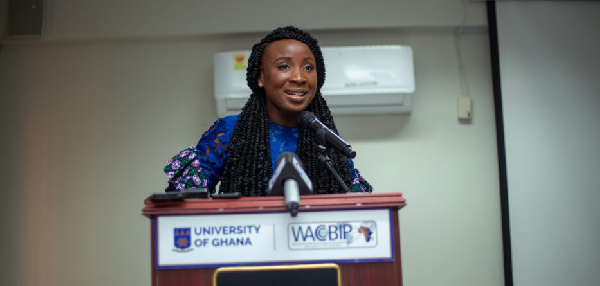Published
6 years agoon

The Edutech platform WeGo Innovate, whose goal is to “inspire and share knowledge, nurture ideas and help young Africans innovate projects that will drive the development of their localities” has announced GH4STEM, an initiative intended to accelerate the promotion of practical education in the area of Science, Technology, Engineering, and Maths (STEM) especially among young Ghanaians.
Launched on Friday, February 14 in the University of Ghana, at the West African Centre for Cell Biology of Infectious Pathogens, GH4STEM will operate via the Junior Experimenters of science (JUNEOS) and the Senior Experimenters of Science (SENEOUS) challenges; a science experiment competition amongst JHS & SHS students which will see students use basic things in the environment to “create science experiments to explain otherwise complicated science phenomena.”
Per broadcaster and actress Naa Ashorkor Mensah-Doku, who has been unveiled as the face of the initiative, GH4STEM is not only crucial in shoring up interest for the Science subjects among kids, but also holds exciting prospects for solving the country’s many challenges.
“Instead of just reading books and chewing and pouring and passing and forgetting, we should do experiments. We want to see the effect of force on an object. We want to be able to generate electricity from our classrooms. We want to be able to solve the many problems our country has, and practical STEM education gives us an opportunity to do that.”
It is widely held that a boost in STEM education also represents a significant improvement in the country’s fortunes. Therefore, in June 2019 for instance, government announced an GH? 88million cedi school-based interactive science and technology-learning centre targeted at offering practical approaches towards learning in Senior High Schools, as well as a £76 million Basic Science Technology Engineering and Mathematics programme which will facilitate the delivery and installation of BSTEM equipment and training across basic schools in the country.
GH4STEM arrives to augment such government efforts.
“We are only just beginning,’ says Mensah-Doku about the GH4STEM programme. “So far, we have over 100 science experiments performed by 100 JHS students across the country—65 % of them being girls.
“We’re very excited to show Ghana what our children in the remotest parts of Ghana are doing in their classrooms. And the best part is they’re using very simple things in their environment; they’re not using complicated Science apparatus […] If a child can do this and they take it home, that’s the beginning of something wonderful.”
Source: enewsgh.com
